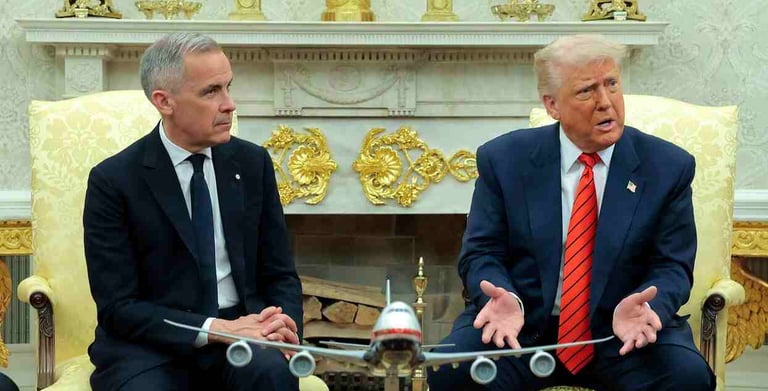Canada Removes Many Retaliatory Tariffs on U.S. Goods — Carney Announces Trade Reset
Prime Minister Mark Carney announces the removal of retaliatory tariffs on U.S. goods under USMCA, restoring free trade for most products—effective September 1—while retaining duties on steel, aluminum, and autos.
8/22/20252 min read
In a major pivot in trade policy, Canadian Prime Minister Mark Carney announced on August 22, 2025, that Canada will lift its retaliatory tariffs on U.S. goods covered by the U.S.–Mexico–Canada Agreement (USMCA). This decision restores tariff-free trade across most categories and signals a renewed willingness to stabilize bilateral economic relations.
What’s Changing
Starting September 1, 2025, Canada will eliminate its 25% retaliatory duties on U.S. products that fall within USMCA coverage. This means the majority of consumer goods—including apparel, beverages, and other everyday items—will no longer face additional import taxes.
However, tariffs on steel, aluminum, and automobiles will remain in force as negotiations continue. This approach reflects a calibrated easing of tensions without fully lifting pressures on sensitive sectors.
Why It Matters
Trade restored: The move effectively reinstates tariff-free trade for more than 85% of U.S.–Canada goods in line with USMCA terms.
Economic impetus: Canada and the U.S. share a deeply interwoven trade relationship, valued at over C$1.3 trillion. Restoring access helps businesses and consumers on both sides.
Diplomatic signaling: Carney framed the change as a strategic olive branch following a direct call with President Trump, who welcomed the move.
Upcoming leverage: By retaining tariffs on steel and autos, Canada positions itself strongly for upcoming sector-specific trade negotiations ahead of the USMCA review in 2026.
Reactions & Perspectives
U.S. response: White House officials described the move as "long overdue" and expressed openness to further discussions on trade and security.
Domestic concerns: Labor leaders, including the president of the Unifor union, criticized the rollback as weakening Canada's bargaining power and potentially disadvantaging workers in tariff-hit sectors.
Strategic Significance
Carney’s decision showcases a pragmatic shift away from retaliatory escalation. By restoring vast swaths of tariff-free commerce, Canada protects consumers and businesses while retaining targeted leverage on sensitive sectors. This balancing act bolsters negotiation flexibility ahead of the USMCA review and helps recalibrate Canada–U.S. trade dynamics without conceding strategic ground.
Conclusion
Prime Minister Carney’s announcement to remove many retaliatory tariffs signals a notable shift toward trade normalization, while still preserving protective measures where needed. It sets the scene for more constructive economic dialogue as the two countries prepare for upcoming USMCA discussions.


